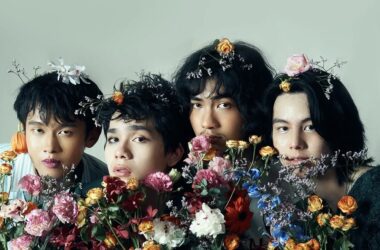In the ever-evolving landscape of global music, few artists have managed to captivate audiences with their unique blend of diverse cultural influences and spiritual themes quite like Sa Dingding. Born on December 27, 1983, in Inner Mongolia, China, this multitalented singer-songwriter, composer, and musician has risen to prominence as a remarkable force in the world music scene. Her music transcends borders, seamlessly weaving together elements from different cultures and languages, creating an ethereal and mesmerizing experience for her listeners.
Early Life and Roots:
Sa Dingding was born as Zhou Peng in the autonomous region of Inner Mongolia, which boasts a rich tapestry of traditions and ethnicities. Growing up in this culturally diverse region, Dingding was exposed to a myriad of musical expressions from an early age. The influence of Inner Mongolia's folk music, which is often characterized by its distinctive throat singing and horse-head fiddle sounds, left an indelible mark on her artistic sensibilities.
Beyond her Mongolian heritage, Sa Dingding's curiosity about the world's various cultures and spiritual practices led her to explore an array of musical genres and traditions. Her thirst for knowledge was insatiable, and she soon embarked on a journey that would take her across continents, connecting with different cultures in her quest to enrich her musical repertoire.
Musical Exploration and Multilingual Talents:
One of the most captivating aspects of Sa Dingding's music is her mastery of multiple languages and her ability to sing in several of them. Fluent in Mandarin, Sanskrit, Tibetan, and even an invented language of her own creation, Dinglish, she effortlessly fuses these languages into her compositions. By doing so, she breaks down language barriers and creates a universal appeal that resonates with audiences from all corners of the globe.
Her debut album, "Alive," released in 2007, was a groundbreaking work that showcased her multilingual talents and eclectic style. With songs like "Ha Ha Li Li" and "Holy Incense," Sa Dingding mesmerized listeners with her ethereal vocals and distinctive blend of traditional and contemporary elements. This album earned her critical acclaim and laid the foundation for her future musical endeavors.
A Musical Visionary:
Sa Dingding's ability to blend genres and create a unique musical soundscape earned her the title of a true musical visionary. Her subsequent albums, such as "Harmony" (2009) and "The Coming Ones" (2010), further exemplified her versatility and innovation.
In "Harmony," Sa Dingding continued to explore her passion for world music by incorporating sounds from India, the Middle East, and Central Asia. The album's standout track, "Qin Shang," featured ancient Chinese lyrics dating back to the 3rd century BC and fused them with contemporary electronic beats, showcasing her ability to bridge ancient and modern sensibilities.
"The Coming Ones" took a more experimental turn, with Dingding delving into dreamy and atmospheric compositions. This album demonstrated her desire to constantly evolve as an artist and push the boundaries of her creativity.
Spirituality and Music:
One of the most profound aspects of Sa Dingding's music is its spiritual nature. Her deep reverence for spirituality and her passion for exploring different belief systems are evident in the themes present throughout her work. Whether she is drawing from Buddhism, Taoism, or other spiritual traditions, Dingding's music often carries a profound sense of mysticism and a longing for higher truths.
Her spiritual quest is not limited to her music but also extends to her lifestyle. Sa Dingding practices yoga and meditation, emphasizing the importance of inner peace and self-discovery. This profound connection between her spirituality and music imbues her compositions with a rare depth and emotional resonance.
Global Recognition and Impact:
Sa Dingding's unique and innovative approach to music has garnered her widespread recognition and accolades both within China and internationally. Her albums have received critical acclaim, and she has been the recipient of numerous awards, including the BBC Radio 3 World Music Award.
Beyond the accolades, Sa Dingding's music has reached a global audience, transcending cultural barriers and touching the hearts of people from various backgrounds. Her performances at prestigious venues and festivals worldwide have exposed audiences to the richness of Chinese culture and the beauty of world music.
Conclusion:
Sa Dingding's musical journey is a testament to the power of embracing diversity, both in culture and spirituality. By fearlessly blending various musical traditions, languages, and belief systems, she has crafted a unique and enchanting sound that speaks to the shared human experience. Her music is a celebration of interconnectedness and a call for harmony among all people.
As she continues to evolve and explore new musical territories, Sa Dingding remains an inspiration for aspiring musicians and a beacon of hope for those who believe in the unifying power of music. In a world where boundaries and divisions often prevail, her artistry reminds us that there is strength in diversity and beauty in embracing the rich tapestry of cultures that surround us. Sa Dingding's musical legacy will undoubtedly continue to resonate and inspire generations to come.






















